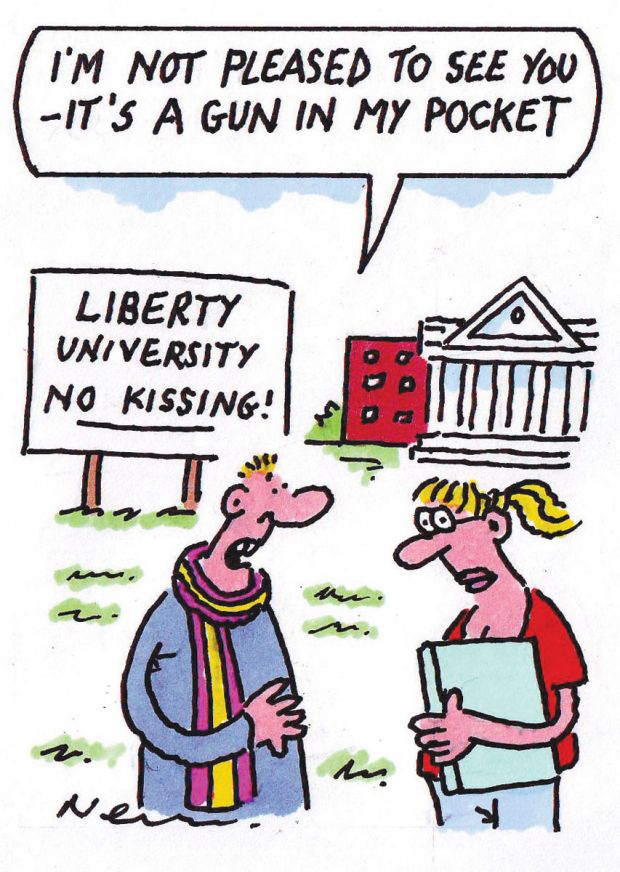
- The discovery of Richard III’s skeleton by University of Leicester archaeologists has generated an estimated £50 million for the city since September 2012, The Times reported on 24 March. But some townsfolk were unimpressed by the commercial tie-ins dreamed up to accompany the week of commemorations to mark the reinterment of the Plantagenet king. Richard III ice cream, flavoured with rose blossom and fruits of the forest, Richard III haircuts at £25 a go, fridge magnets, silk ties and rusty iron crowns are among the products available, the paper said. “The more I see of the undignified, money-grabbing pantomime surrounding King Richard III…the more incensed I become,” one detractor fulminated on Facebook. However, others will find it hard to begrudge the city for making a few quid as thousands queued to see the maligned monarch’s coffin: much of the money raised by memorabilia sales will go to educational projects in Leicester.
- Prince Charles received a typically warm Kentucky welcome as he addressed a health and environment symposium at the end of a four-day US tour. But the speech on “the principles of harmony” on 20 March did not find favour with some of the US scientific community, with one academic urging people “[not] to listen to a foolish word he says”. In an article for Slate magazine on 17 March, titled “Prince of Pseudoscience”, David Gorski, professor of surgery and oncology at Wayne State University and editor of the blog Science-Based Medicine, warned about Charles’ frequent advocacy for “the most ridiculous form of quackery…homeopathy”. Yet despite their opposite views on the issue, Gorski thanked the “hopeless crackpot” and heir to the British throne for one thing. “It’ll only be four days that we in the U.S. have to put up with him,” he said, adding “my poor fellow scientists and physicians in the U.K.” will hear a lot more from him over the coming decades.
- Right-wing Republican Ted Cruz launched his White House campaign at Liberty University in Virginia before a 10,000-strong crowd on 23 March. But many seemed more interested in the ultra-Christian university than in the Tea Party darling, who was a major force behind the shutdown of the US federal government in 2013. Founded by televangelist Jerry Falwell, Liberty teaches the idea that God created the world in six days and provides scale models of Noah’s Ark to show how the animals fitted inside it, The Daily Telegraph reported on 23 March. Liberty is also “burdened with an ironic name”, pointed out US network MSNBC’s Steve Benen, stating that students are banned from drinking alcohol, dancing, kissing, wearing mini-skirts or watching R-rated films. They may possess loaded firearms on campus, which means “students are far more likely to see someone carrying a semi-automatic than carrying a bottle of beer”, Benen said.
- A university has set up a “rabbit café” that allows students to de-stress by cuddling a bunny, The Independent reported on 20 March. The cafe at Brunel University London, which runs on Friday afternoons, is inspired by similar initiatives in Japan and Taiwan, which connect animal lovers to part-time pets. “Rabbits don’t judge you on what you wear or what grade you got on your last assignment,” said Sally Hitchiner, Brunel’s Anglican chaplain and interfaith adviser, who runs the project. “We want to promote an atmosphere where everyone is valuable and accepted.”
- Student film-makers in Northern Ireland were confronted by armed police when they were mistaken for masked robbers, BBC News reported on 20 March. A passer-by raised the alarm after seeing a man wearing a balaclava holding a gun in a takeaway restaurant in the seaside resort of Portstewart on 18 March. When armed police ordered the man to put down the fake gun, it emerged that the “robbers” were Ulster University film students. Mark Bell, president of Ulster’s Coleraine campus students’ union, said the students had sought permission from the restaurant and the local council to make the film, calling the incident “a very unfortunate mix-up”. He said the students involved were “traumatised” by the incident, but hoped to finish their project.
Register to continue
Why register?
- Registration is free and only takes a moment
- Once registered, you can read 3 articles a month
- Sign up for our newsletter
Subscribe
Or subscribe for unlimited access to:
- Unlimited access to news, views, insights & reviews
- Digital editions
- Digital access to THE’s university and college rankings analysis
Already registered or a current subscriber? Login
